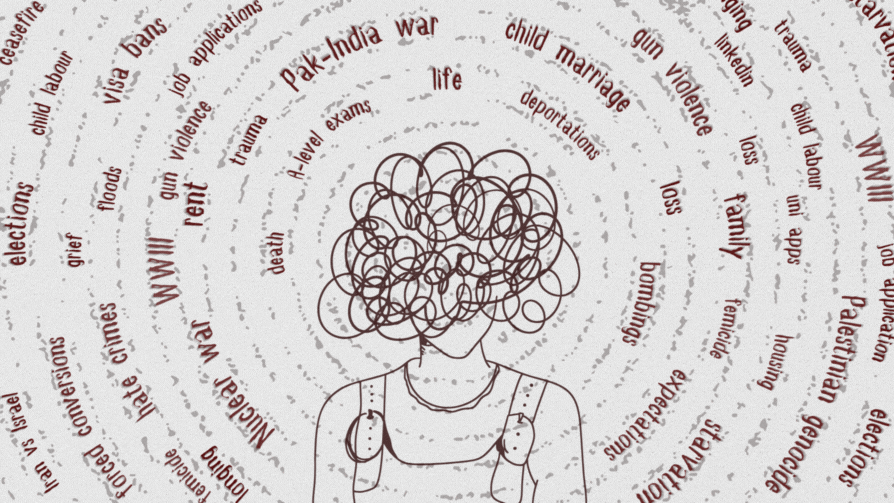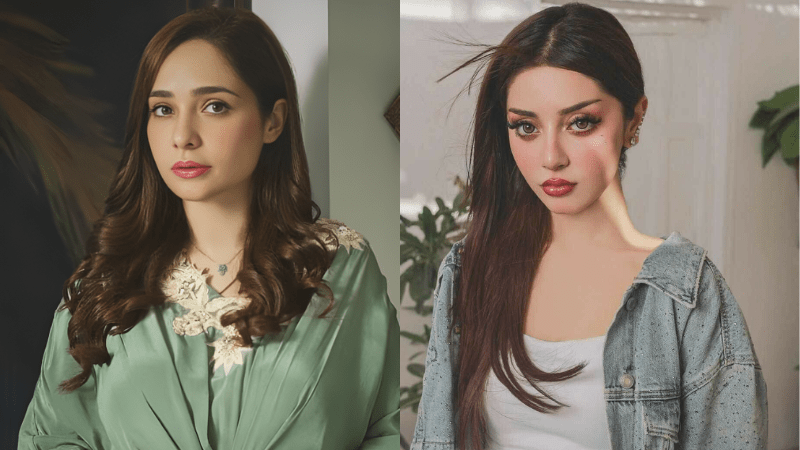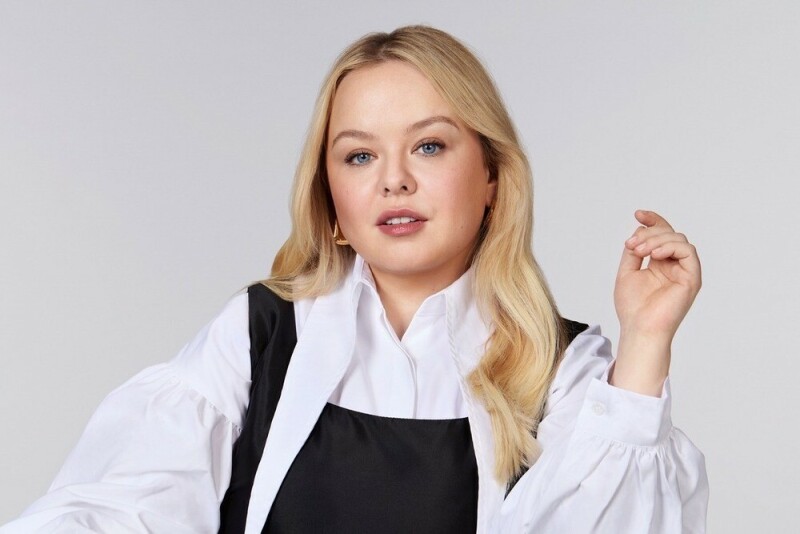Fairytale writer Sarah Majeed on creating everyone’s new favourite couple in Umeed and Farjad
Romcoms in Ramazan seems like an unlikely trend but light, family-oriented entertainment has become an annual event, with channels now offering four such shows per day. While all of them achieved good ratings, the surprising standout was Fairytale, a low-budget show with no superstars and an unknown writer. Despite the competition, Fairytale dominated social media and was almost immediately given a season 2.
The show has been trending on social media but more than that, it’s touching people’s hearts, so we decided to talk to writer Sarah Majeed about it.
Fairytale was a favourite among romcom fans who are regular viewers of Pakistani television, but it also captured a surprisingly strong following among an audience usually highly critical of Pakistani content. Despite being set in an obviously Pakistani context, Fairytale was being favourably compared to international shows, particularly Korean dramas, and despite its simple premise, lauded for rising above the usual tropes.

Images: Why do you think this show has caught the attention of such a diverse audience? Why do you think this show captured the attention of a more sophisticated younger generation that are comparing it to Korean serials?
Sarah Majeed: To attract the young generation, it’s important to focus on relevant and relatable content and incorporate modern storytelling techniques. What set it apart from traditional content was the combination of “classic romance with nuanced, modern treatment.”
Images: How and why did you create a heroine like Umeed, whom we love with all her issues instead of say a good girl like Haya?
Sarah Majeed: Yes, unlike the image of our perfect heroine, Umeed is a strong, happy, imperfect, and free soul who lives her life as she wants to live, has a unique attitude and a lifestyle that is different from others. She is also unafraid to explore life and taste new experiences. On the other hand, Haya meets the criteria of our traditional self-sacrificing heroine, who loves everyone unconditionally.
So, I chose Umeed as my heroine, who makes mistakes and has a lot of personality flaws, in stark contrast to our image of the smart, wise, truth-telling, all-caring, perfect heroine, which we all have in our personalities.
Images: We are so used to stories about vicious sister rivalry and turf wars between two wives and of course epic saas-bahu sagas that it was almost a shock to see the quite reasonable and loving relationships between the young girls Umeed, Mimi and Haya. It was actually a fabulous mood booster to see women supporting each other instead of the usual petty jealousies. Why didn’t you use the usual plot twists or plot movers of jealous women in this show? Even Chachi’s attempts at negativity were neutralised by the sheer goodwill and positivity of the younger generation?
Sarah Majeed: Unfortunately, some of our writers — not all, of course) — don’t have much exposure to the world; they are writing what they experienced in their surroundings, and these twists and turns do exist in our society. I really appreciate them depicting these things brilliantly in dramas. My writing, however, is a reflection of my imagination, my experiences, and what I have been exposed to.
Images: People have compared Farjad’s controlled and emotionally stifled personality to Jane Austen’s Mr Darcy. It is probably not politically correct, but he seems to be that old fashioned word, “chivalrous”, without suppressing Umeed’s free spirited nature. Despite his quite reasonable mistrust of Umeed, he is always kind, very protective and willing to correct himself. Who is Farjad based on, or is he a composite character? Or is he just your idea of what a hero should be?
Sarah Majeed: Initially, I loved Mr Darcy, Mr Knightly, and many other fictional heroes, but when I created Farjad, I forgot all of them. Farjad is relatable, he has depth, and possesses many qualities I admire. Farjad has a strong moral compass and shows empathy towards others, like an ideal hero, you can love. He inspires, uplifts others, overcomes challenges, and learns from his mistakes. At the same time, he is vulnerable enough to fear losing someone and is willing to protect those he cares about. In my eyes, he is the best son, best brother, best husband, best son-in-law and my most impactful character.
Images: Despite being set in a fairly traditional context, Fairytale had some pretty modern elements for Pakistani TV. For example, there was no issue about Umeed or any girl wearing western clothes, nor were they a signifier of character. Umeed was shockingly unafraid of chasing her dreams and unafraid of Farjad despite his “fire breathing tendencies”. A lot has also been said about the female gaze, in that Umeed was confident in her choice of Farjad and looked at him with joy. Even the exchange of glances between Farjad and Umeed when they think Niggo is asking for their rishta was a beautiful illustration of this. Farjad is happy, but he immediately looks back at Umeed for consent and approval rather than rushing in.
Why do you think people felt Umeed and Farjad’s dynamic was different and modern? Why is a happy bride such an unusual thing on Pakistani television?
Sarah Majeed: One important thing that makes Fairytale different from other dramas is its modern and forward-looking approach, which highlights gender equality and freedom of expression.
That’s why Farjad and Umeed don’t hesitate to feel bound by convention; rather, they are comfortable living outside their comfort zone because they live straight from their hearts.
Umeed being a bride is as happy as Farjad is being a groom, but yes, it’s unusual for PTV, and the reason is the same — it’s all about the exposure of our writers; they don’t want to look out of box. It’s a fact that exposure to different cultures and travel can greatly enrich and inspire good and creative writing. It broadens perspectives, deepens understanding of diverse experiences, and provides a wealth of inspiration for unique storytelling. It allows writers to incorporate authentic cultural elements, explore new settings, and create more nuanced and inclusive narratives.
Images: Pasha Saheb was a terrible father for a lot of the show, will he learn and improve in season 2?
Sarah Majeed: Pasha Saheb was tough to write as he is the most sensible, responsible, and civilised person in the family, but at the same time, he made some wrong decisions and avoids communicating with anyone. It was really difficult to balance this complex but lovable personality.
Yes, every character has a story behind them. Whether it’s a main character or a supporting character, they all have their own background and experiences that shape who they have become. So, yes, of course he will realise his mistakes and improve his understanding of how to communicate with the younger generation.
Images: Will we see AK Khan and Mimi’s relationship develop this season? Will AK have to mature before he can win Mimi?
Sarah Majeed: I cannot say anything yet, as it is part of the story yet to be revealed. So, let’s see, but it will be something good or even better.
Images: How would you like to see the industry improve in the future? What is lacking now?
Sarah Majeed: One aspect that many feel may be lacking in the drama industry nowadays is originality. There is a huge desire for fresh and innovative storytelling that breaks away from predictable and formulaic plot lines. Many viewers crave more representation of diverse characters, narratives and perspectives, rather than the same old stereotypes. The drama industry is constantly evolving and there are still many amazing and unique stories being told.
Images: What kind of story would you like to write if you had a free hand and open budget?
Sarah Majeed: I would love to write a story about multiple cultures across the globe. I like to watch Netflix and international dramas but among my favorite Pakistani serials are classics like Angan Tera, Dhoop Kinaray, Ankahi and Meri Zaat Zara e Benishan. I have also enjoyed watching Zindagi Gulzar Hai, Parizaad and Pyaray Afzal, among many others
Images: Can you tell us about your future projects?
Sarah Majeed: I will start working on a new rom-com for Hum TV, soon. I cannot say much more.
Images: This is THE most popular fan question: When did Farjad and Umeed fall in love?
Sarah Majeed: Farjad and Umeed experienced a strong attraction and instant connection to each other on their first meeting. Farjad realised his feelings when AK proposed to Umeed, and later on, Umeed fell in love after that iconic office stairs scene before his birthday.
Images: Another very popular question is which Farmeed scene is your favourite, and which was the hardest to write?
Sarah Majeed: This is a tough question for me, as all scenes I have written are my favourites.
But I love the last scene from Season 1. Yes, I’m talking about their confession of love — it was a heartwarming, deeply emotional, and memorable moment of pure romance. Just wait, my favourite scene from Season 2 will hit your screen soon — it will be the heart of the whole story.
What was the most difficult scene to write? There is no scene; all these scenes came to me very naturally, and I always go with that flow.
Images: What did Farjad mean when he said “Sirf thank you” when he brought Umeed back from the police station?
Sarah Majeed: If you love someone, you might expect more than just a simple “thank you” in return. Expressing love often involves deeper emotions, connection and actions, such as reciprocating affection, spending quality time together, and showing support and care. “Only thank you” might not convey the same level of affection or interest.
Here by “deeper connection and action,” I meant a stronger emotional bond or a more meaningful relationship. It doesn’t necessarily imply physical intimacy like kissing or hugging. It’s important to communicate your boundaries and make sure both parties are comfortable and on the same page. Well, what the fans are interpreting is fine too.
Images: What is the thought behind Prem and Preet, the Indian soap opera with in Fairytale?
Sarah Majeed: Last season, we created a game show, and this time we have created a mini-drama within a drama.
Indian dramas have been popular in our country for a long time, and still 40 per cent of people are fans of Indian dramas and watch them with great interest, so we have recreated such a drama for Pakistani fans as well as our Indian fans, as a gift.
And one other important reason behind it is to explore the perspective: do dramas affect our lives? This is a common notion that our people hold about what they see in dramas, so I want to explore through Niggo Jee, whether it really happens or if a drama should be seen as just a drama. Niggo Jee is upset about what’s going on in his son’s life after Umeed’s entry. However, we also know, she is soft-hearted and kind by nature, so let’s see what will happen in her journey to become a villain in a fairytale — will she succeed or fail?










